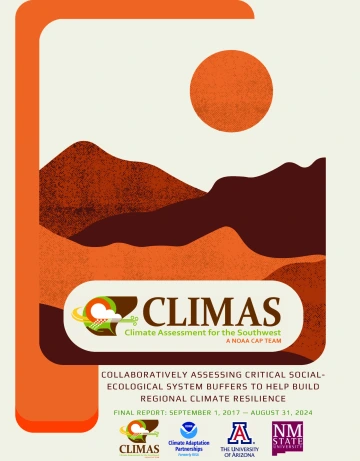USDA Livestock Forage Disaster Program and Ranching in the Southwest U.S.
The 2014 Farm Bill permanently authorized the USDA Livestock Forage Program (LFP), which provides compensation to livestock producers who suffer grazing losses caused by drought and wildfires. The LFP bases payment eligibility on drought status categories of the U.S. Drought Monitor. Yet, there is evidence that Drought Monitor categories do not accurately capture the timescales of climate variability driving forage production and drought impacts across Arizona and New Mexico. Therefore, the current system may understate the extent of losses and need for compensation of Southwest ranchers. This study evaluates how the current application of the Drought Monitor in the LFP addresses drought and wildfire risks faced by Arizona and New Mexico ranchers and will seek out drought monitoring best practices specifically for rangeland systems. This project connects with several others in the Southwest aimed to improve the efficiency and efficacy of drought monitoring across the region. These projects support drought early warning as conceived by NIDIS and will help identify best practices in employing more relevant, timely, and unique drought monitoring strategies needed for AZ and NM.
Ongoing work includes:
- Engaging rural communities and ranchers in volunteer precipitation monitoring to improve the characterization of drought conditions in rural areas and to help inform the U.S. Drought Monitor (led by the USDA Southwest Climate Hub).
- Assessing the impact of drought on agricultural production and ranching in Arizona and developing an economic impact analysis of the Livestock Forage Program for Arizona (led by CLIMAS PI G. Frisvold, with A. Kerna Bickel and D. Duval).
- Understanding the impact of drought on the Rio Grande watershed in New Mexico (led by CLIMAS researcher C. Greene)
Project Partners: National Weather Service, Society for Range Management - Arizona Section, Natural Resources Conservation Service
Additional Funders: National Integrated Drought Information System (NIDIS)


